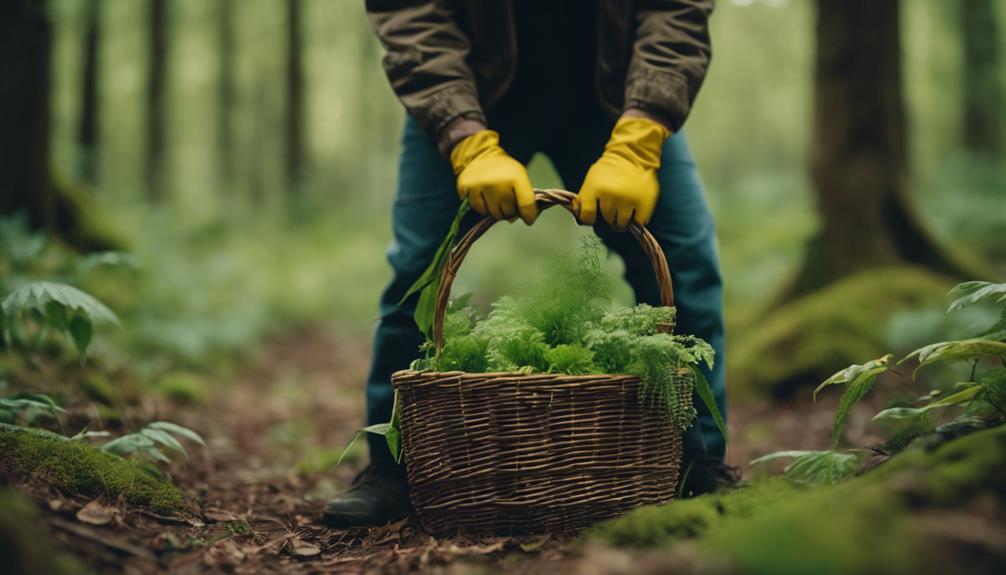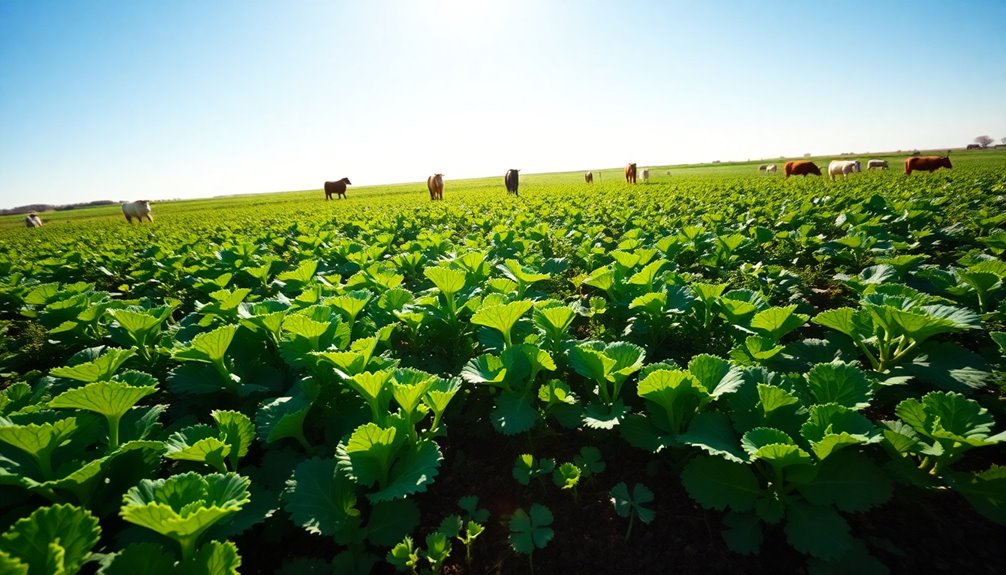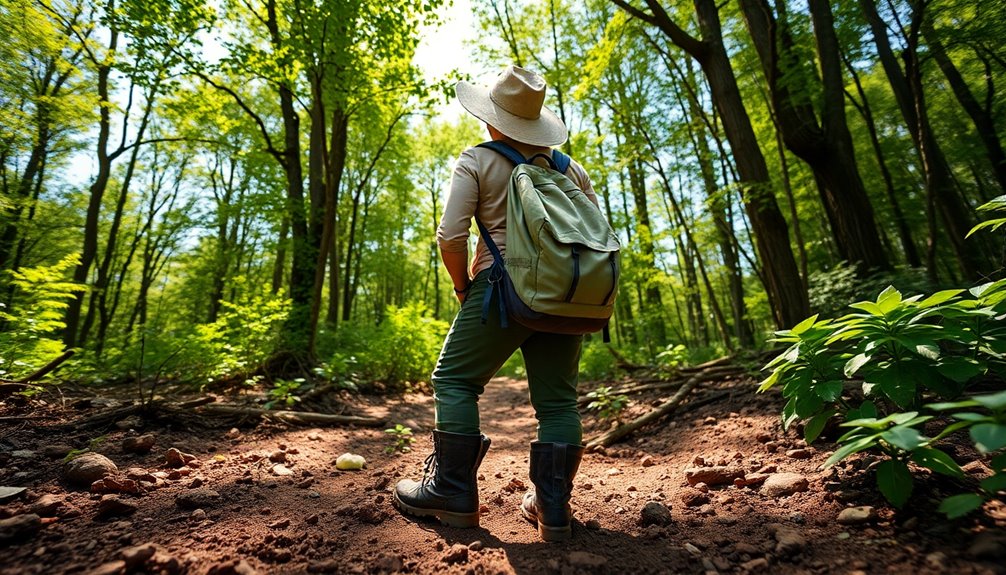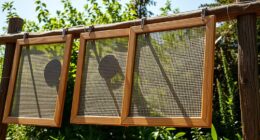Securing a **foraging license** offers unexpected perks: the ability to gather wild edibles legally, uncover exclusive foraging spots, and contribute to conservation efforts through sustainable methods. To obtain one, you must master **plant identification** and take a foraging course. Safety is crucial, with guidelines to detect toxins and adhere to regulations. Minimal fees aid in conservation and biodiversity. Embrace nature and ancient practices while safeguarding ecosystems through ethical foraging license practices. Discover more about the advantages and steps to acquire your own foraging license. Dive in to explore this fascinating world!
Key Takeaways
- Legal access to harvest wild plants sustainably.
- Opportunity to forage in exclusive locations.
- Support conservation efforts and biodiversity.
- Ensure compliance with regulations and prevent fines.
- Gain knowledge through foraging courses for safety.
Benefits of Foraging Licenses
Curious about the advantages of obtaining a foraging license? One significant benefit is the opportunity to harvest wild edible plants legally. These licenses grant you the right to gather food from designated areas while ensuring you abide by regulations and practice responsible foraging.
In some states, foraging licenses are mandatory to prevent over-harvesting and protect the delicate balance of natural habitats. Moreover, having a foraging license can provide access to exclusive foraging locations and resources that may not be available to the general public.
By obtaining a license, you not only support conservation efforts but also contribute to sustainable foraging practices. This legal permission promotes a harmonious relationship between foragers and the environment, allowing for the continued enjoyment of wild edible plants for generations to come.
Sustainable Harvesting Practices
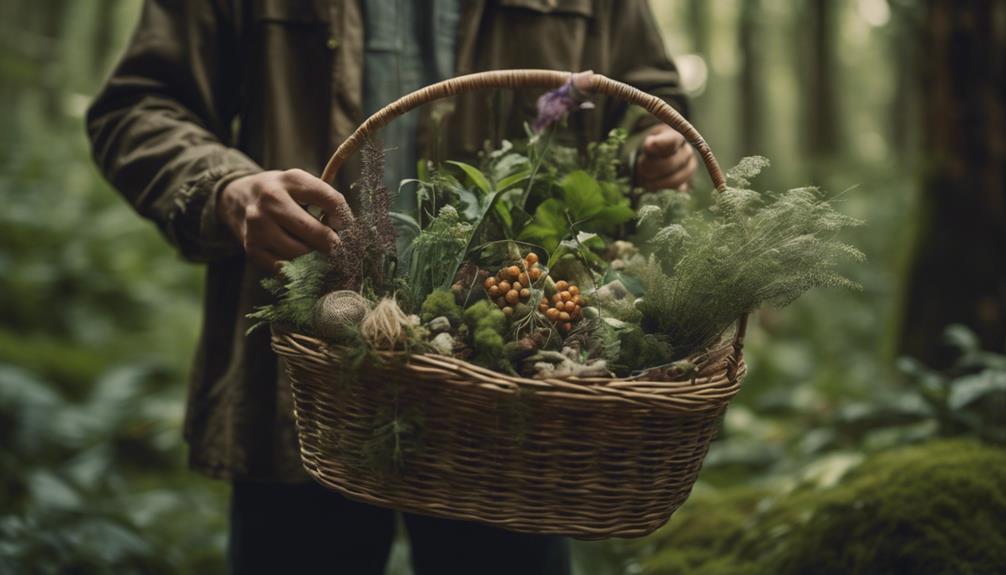
To guarantee minimal impact on ecosystems, sustainable harvesting practices involve ethical foraging methods. When foraging for wild plants, it's important to harvest responsibly to protect the delicate balance of nature.
By obtaining a foraging license, you commit to sustainable practices that help maintain biodiversity and preserve wild plant populations for future generations. These practices not only benefit the environment but also make sure that you're contributing to the conservation of natural resources.
Foraging licenses often come with guidelines on sustainable harvesting, such as limits on quantities and protected species, which are designed to safeguard the ecosystem.
Embracing sustainable foraging practices promotes environmental stewardship and supports efforts to protect our natural habitats. Remember, every action you take while foraging can have a lasting impact on the environment, so by following ethical harvesting methods, you play an essential role in preserving the beauty and diversity of wild plants for years to come.
Legal Access to Wild Foods
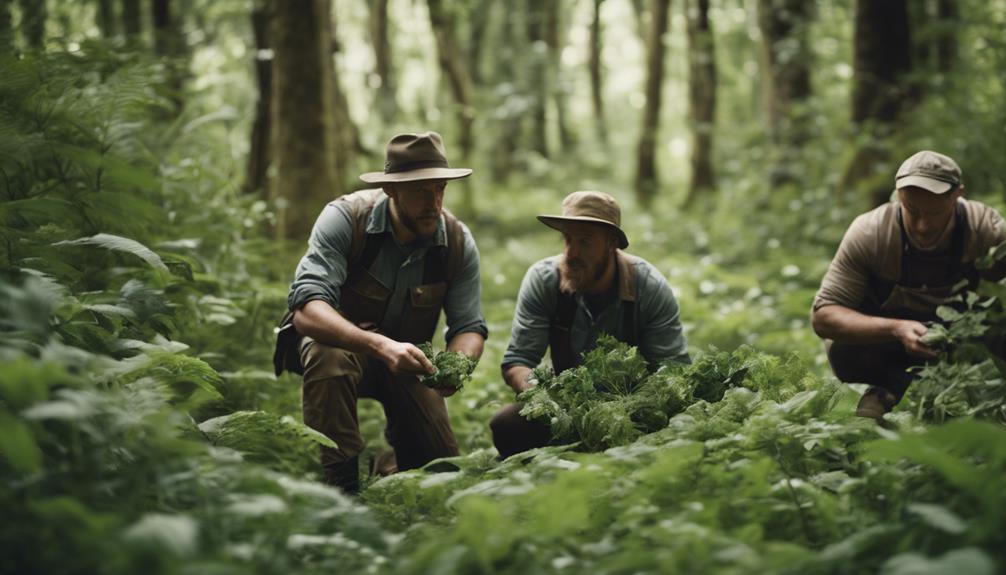
By acquiring a foraging license, you gain legal access to wild foods found on public lands, guaranteeing compliance with regulations and preventing fines for unauthorized foraging.
This license serves as a gatekeeper, allowing individuals to harvest nature's bounty while respecting the rules put in place to protect ecosystems and wildlife.
Having a foraging license not only grants you the opportunity to enjoy the thrill of hunting for wild foods responsibly and sustainably but also promotes ethical harvesting practices and conservation efforts.
It's essential to recognize the importance of obtaining a foraging license in areas where wild foods are abundant to ensure that our harvesting activities don't harm the delicate balance of nature.
Embracing this process of legal access to wild foods through a foraging license demonstrates a commitment to preserving the beauty and diversity of our natural world for generations to come.
Foraging Education Requirements

To obtain a foraging license in California, you must first complete a foraging education course. This course covers essential topics like plant identification, sustainable harvesting practices, and safety guidelines.
Education Prerequisites for Foraging
Completing a foraging course or workshop is typically necessary to meet the education prerequisites for obtaining a foraging license. These courses cover essential topics such as plant identification, foraging ethics, and safety measures. Understanding plant identification is vital as it enables foragers to distinguish between edible and toxic plants accurately.
By learning to identify local flora and fauna, foragers can forage responsibly and sustainably, minimizing harm to the environment. Additionally, gaining knowledge about foraging ethics guarantees that foragers respect wildlife habitats and follow ethical guidelines while harvesting wild foods.
Foraging education aims to equip individuals with the necessary skills to practice foraging safely and ethically. Some states may also require passing a foraging exam as part of the education prerequisites for obtaining a foraging license. By fulfilling these educational requirements, foragers contribute to environmental conservation efforts and help maintain the delicate balance of ecosystems.
Obtaining Foraging License Requirements
Meeting the education prerequisites through foraging courses or workshops is an essential step towards fulfilling the requirements for obtaining a foraging license. When pursuing your foraging education requirements, consider these key factors:
- Local Regulations: Foraging education requirements can vary by state, so it's important to check with your local wildlife agency for specific details on what courses or workshops are accepted.
- Online Programs: Some states offer online foraging education programs that may fulfill the requirements for obtaining a foraging license, providing flexibility for those unable to attend in-person sessions.
- Field Guides: Utilizing field guides during your foraging courses can enhance your learning experience by helping you identify different plant species accurately and understand their uses.
- Promoting Sustainability: Completing foraging education requirements not only aids in obtaining a foraging license but also ensures responsible foraging practices, contributing to the conservation of natural resources.
Importance of Plant Identification

Identifying plants correctly is crucial for your safety when foraging. Mistaking a toxic plant for an edible one can have serious consequences on your health.
Developing plant identification skills guarantees you can confidently distinguish between what's safe to eat and what's not in the wild.
Plant ID Techniques
Mastering plant identification techniques is essential for safe foraging practices, allowing you to confidently differentiate between edible plants and potentially toxic look-alikes. Here are four key plant ID techniques to help you enhance your foraging skills:
- Leaf Characteristics:
Pay attention to the shape, size, arrangement, and texture of leaves, as these features can vary greatly between plant species. For example, poison hemlock has fern-like leaves, while wild carrot leaves are feathery.
- Flower Identification:
Flowers can be vital in distinguishing between similar plants. Notice the color, shape, and arrangement of flowers, as they can provide valuable clues for plant identification. For instance, elderberry flowers are white, whereas water hemlock flowers are small and white clustered in umbels.
- Habitat Observation:
Understanding the environments where different plants thrive can aid in identification. Some plants prefer wetlands, while others thrive in dry, rocky areas. Observing habitat can guide you toward the right plant species.
- Seasonal Changes:
Plants can look different throughout the seasons. Be aware of how plant characteristics change from spring to fall, including variations in leaves, flowers, and fruit, to accurately identify them year-round.
Field Guide Essentials
When venturing into the world of foraging, having a reliable field guide is essential for accurately identifying plants and ensuring a safe and enjoyable experience. Proper plant identification is important to avoid potentially toxic plants and enhance your foraging skills. Field guides play an important role in providing detailed information on edible plants, helping you confidently distinguish between various species in the wild.
By honing your plant identification skills through these guides, you can gather wild foods for consumption with certainty and minimize any risks associated with misidentifying plants.
Whether you're a beginner or an experienced forager, field guides are indispensable tools to navigate the diverse world of wild edibles. They not only enhance your foraging experiences but also empower you to make informed decisions about what to harvest.
With the guidance of a thorough field guide, you can enrich your foraging expeditions and deepen your connection with nature through accurate plant identification.
Nominal License Fee
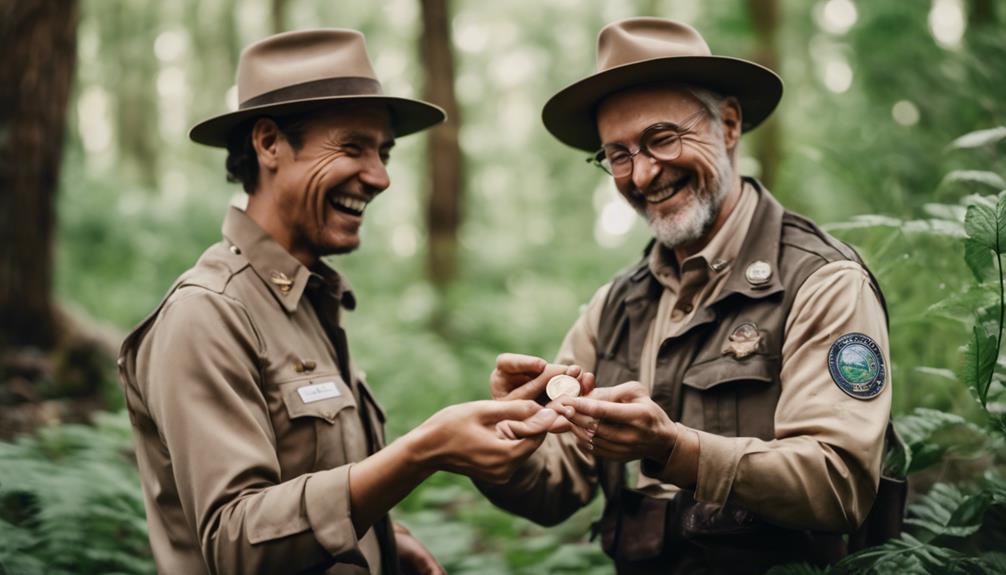
The nominal fee for a foraging license in California is typically around $20, making it an affordable option for those interested in legally harvesting wild plants.
Here are some key points to ponder concerning the nominal license fee:
- Affordability: The low cost of the foraging license makes it accessible to a wide range of individuals, encouraging more people to engage in this sustainable practice.
- Supporting Conservation: By paying the nominal fee, foragers contribute to conservation efforts and the maintenance of wild plant populations, ensuring the sustainability of foraging activities.
- Knowledge and Compliance: Investing in a foraging license demonstrates a commitment to understanding and following regulations, promoting responsible foraging practices that benefit both individuals and the environment.
- Legal Protection: Possessing a foraging license provides legal protection for foragers, allowing them to enjoy the health benefits of wild plants without the risk of facing penalties for unauthorized harvesting.
Safety Precautions for Foragers
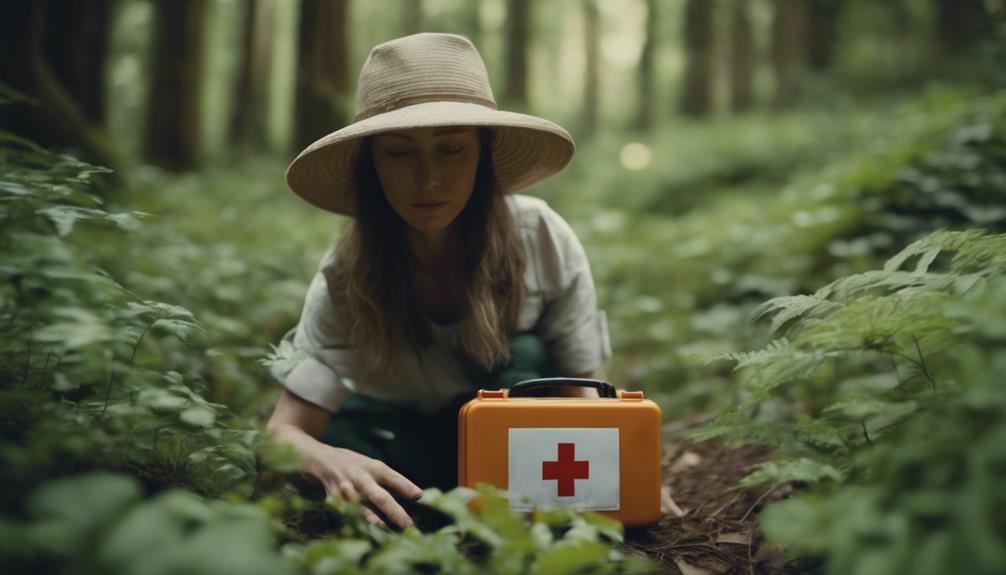
To guarantee your safety while foraging, it's essential to take proper precautions and be aware of potential risks in the wild.
To begin with, learn to identify poisonous plants and mushrooms to avoid accidental ingestion. Respect private property by obtaining permission before foraging on someone else's land.
Carry a field guide or use a foraging app to accurately identify edible plants from foraging resources. Avoid foraging near polluted areas or places where pesticides/herbicides are used to uphold food safety.
Be mindful of local regulations and restrictions on foraging to prevent fines or legal issues. By following these safety measures, you can enjoy the benefits of foraging while minimizing risks to your health and the environment. Remember, safety should always be a top priority when exploring the wild for edible treasures.
Environmental Conservation Impact

By obtaining a foraging license, you actively contribute to the conservation of local ecosystems and promote sustainable harvesting practices.
Here's how your choice to get a foraging license impacts environmental conservation:
- Regulation and Monitoring: Foraging licenses help regulate and monitor the impact of foraging on local ecosystems, ensuring that harvesting activities are sustainable and controlled.
- Preservation of Wild Plants: Individuals with foraging licenses contribute to the conservation of wild plants and habitats by following guidelines that protect these resources.
- Promotion of Sustainable Practices: Licensed foragers adhere to guidelines that promote sustainable harvesting practices, minimizing the negative impact on plant populations and ecosystems.
- Biodiversity Preservation: Foraging licenses play an essential role in preserving biodiversity and protecting endangered plant species, safeguarding the delicate balance of local ecosystems.
Deepening Connection With Nature
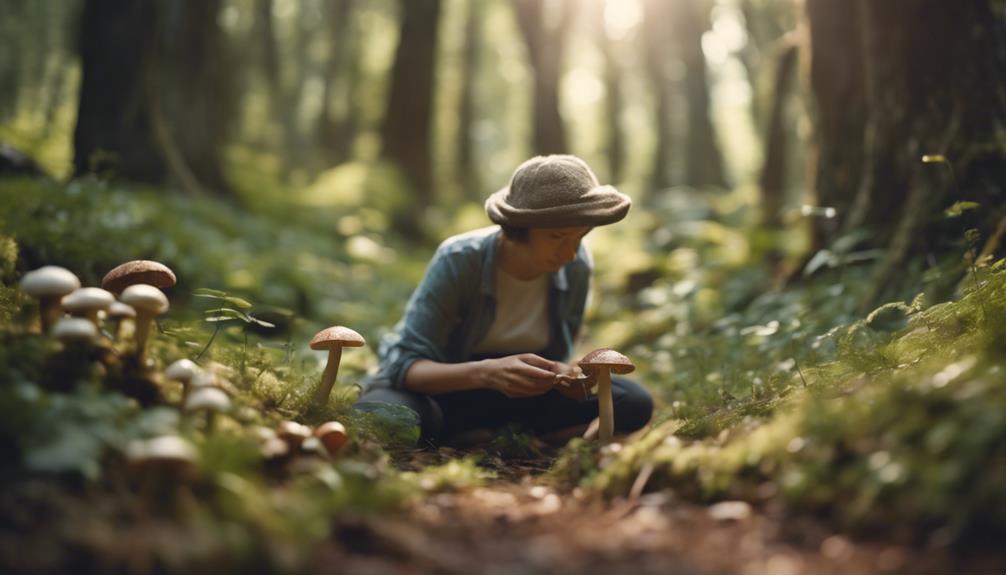
Deepen your bond with nature through the exploration and appreciation of wild edible plants with a foraging license. Years ago, the practice of foraging was essential for human survival, fostering a deep connection to the land and its resources.
By obtaining a foraging license today, you not only reconnect with this ancient tradition but also demonstrate your dedication to sustainable living practices. This license serves as a gateway to responsible foraging, ensuring that you harvest wild plants in accordance with local regulations and guidelines. Moreover, it showcases your commitment to preserving natural ecosystems and supporting biodiversity conservation efforts.
With a foraging license, you have the opportunity to immerse yourself in the wilderness, discovering new edible plants, and gaining a profound appreciation for the abundance of nature. Each foraging excursion becomes a journey of exploration and connection, allowing you to forge a deeper relationship with the environment and all its wonders.
Frequently Asked Questions
What Are the Benefits of Being a Forager?
Being a forager brings exciting benefits. Explore nature sustainably, contribute to conservation, and join educational workshops. With a license, you access designated areas and foraging events. Embrace the perks of responsible foraging!
What Is the Golden Rule of Foraging?
When foraging, remember the Golden Rule: take only what you need, leaving plenty for wildlife and future pickers. By following this principle, you help maintain ecosystem balance, support sustainable harvesting, and protect biodiversity.
What Is the Number One Rule of Foraging?
Always positively identify plants to avoid harmful species. Prevent accidental ingestion of toxins by knowing characteristics and habitats. Enhance knowledge with guides, experts, and workshops. Stay safe and enjoy foraging responsibly.
What States Is Foraging Illegal?
You might be surprised to learn that foraging is illegal in some states. It's important to know the regulations in your area. Violating these laws can lead to fines or legal trouble. Stay informed and forage responsibly!
Conclusion
So, if you're looking to deepen your connection with nature, expand your culinary horizons, and contribute to environmental conservation, getting a foraging license might just be the perfect choice for you.
With the benefits of legal access to wild foods, sustainable harvesting practices, and the opportunity to learn more about plant identification, taking this step can lead to a world of new possibilities.
Plus, who knows, you might just discover a new favorite foraged food along the way!


